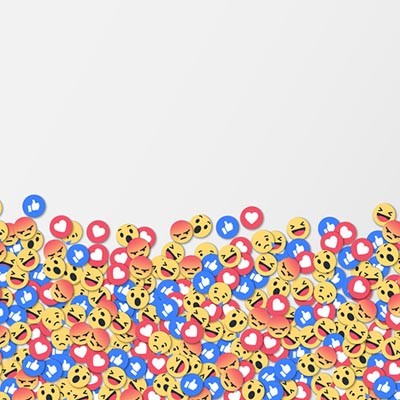BNMC Blog
Like it or hate it, it is undeniable that social media is a massive part of the culture. What were once cool websites that you could connect with people of like interests, or at least your extended family and friends you haven’t seen in a while, now are multi-billion dollar businesses that have influence over social trends, politics, and many other social constructs we depend on daily. With social media being so entrenched in the fabric of our digital worlds, it’s important to know exactly where you stand in regard to your individual rights and privacy. Let’s take a look at one contemporary situation that is sure to have ripple effects throughout society in the months and years to come.
In just a short time, social media has become pivotal to most people’s personal, professional, and social lives. There are significant benefits to using social media for various tasks, but the adverse effects are pretty pronounced and hard to ignore at the same time. In fact, it might be a good idea to take a break now and again, called a social media detox. Let’s discuss how you can make this break work for you so that you can return to enjoying your accounts after the detox.
For the past six months, the social media giant Meta (AKA Facebook) has attempted to take advantage of the perceived instability at X (AKA Twitter) and create a microblogging community in the same vein, called Threads. Today, we thought we would take a look at Threads and how it is similar to X, and how it aims to pull users away from the microblogging giant.
There’s no question that most of the companies that we interact with nowadays capture and share data. Many of them package them up and sell them to marketing companies that follow users around the Internet. Too many people don’t know how to keep from oversharing their personal information and it can have negative effects on their lives. This week, we thought we’d give you some tips on how to keep your personal data from getting needlessly exposed.
In December of 2021, Twitter suffered from a vulnerability related to one of its APIs. In July of the following year, 5.4 million users had their data leaked, as a result of this vulnerability, and put on sale through the black market. Another hacker has recently put this data up for sale, proving that these API attacks are quite problematic not just for big social networks like Twitter, but all businesses.
Most everyone uses a search engine, whether it’s Google or one of the others out there; although the statistics about whether or not you use Google are more than a little skewed in Google’s favor. Why is it such a popular tool, and what other options are out there for the enterprising Internet user?
You might sometimes receive email notifications from LinkedIn telling you that someone has looked at your profile, and that’s fine and all until you realize that LinkedIn is telling other people that you’re looking at their profiles. For some, this can seem like a breach of privacy, so to rectify this, we’ll help you adjust your settings so that you won’t feel so intruded on.
It seems like there is a new data breach every time we turn around, and in most cases, these breaches expose the personal data of many people. The most recent breach in this troubling trend is for the popular social media website LinkedIn. This breach exposed 700 million profiles, an event which led them to be sold on a popular hackers forum. The scary part? LinkedIn denies that there was any data breach.
The Federal Communications Commission has begun to target social media companies in what seems to be part of an overtly political act by the White House ahead of November’s elections. Today, we will take a look at Section 230, how it currently gives social media power that some politicians are uncomfortable with, and what they plan to do about it.
Do you use Twitter to keep in touch with your clients? If you don’t, you should consider it, as it provides a simple way for you to reach the people you want to have as clients. While the brief-message format that Twitter is based on may seem to be an obstacle, Twitter has provided an elegant way to overcome this potential issue. This week, our tip will cover how to create a Twitter thread.
Social media plays an increasing role in both the professional and personal sides of our lives. Unfortunately, this means that we all experience an increase in exposure to the many scam attempts that will appear on our screens. Like any kind of scam, the best defense against those that appear on social media is good, old-fashioned awareness and vigilance.
Facebook has become a highly effective networking tool in both our professional and personal lives. As I’m sure I don’t need to tell you, a business page on Facebook can bring a lot of attention to your company. Unfortunately, if someone were to use the wrong kind of language on your page, this attention likely wouldn’t be the kind you want your business to get. For this week’s tip, we’ll go over how you can get rid of this kind of content to protect your business’ reputation.
Social media has brought about a massive shift in the way people interact. Today we share our opinions, photos, and videos; and, we can even choose our dates by swiping right or left. With social media, people share moments, opinions, and other information, but is all this sharing actually setting people, and the organizations they interact with, up for failure? We’ll take a look at social media privacy concerns and potentially hazardous practices that could exacerbate the problems further.
There is no denying that social media is one of the most powerful communication tools of our time, especially for businesses trying to communicate with their clients and customers. However, while you will want to have an account for your business on social media, you might not want a presence of your own. Today, we’ll discuss this quandary, and how you can resolve it.
Social media might make it easy to stay connected, but it comes with a lot of negative side-effects--particularly in regard to security for both personal and professional use. If social media isn’t used properly, it could spell trouble for your organization. How can you foster proper social media usage so that your organization doesn’t suffer from poor security practices? It all starts by spreading awareness.






















